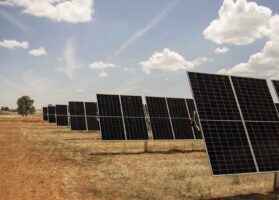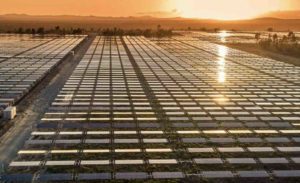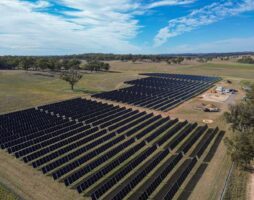German auto giant Daimler AG has delivered its answer to the Tesla Semi, unveiling an all-electric version of its Cascadia heavy duty semi-trailer truck, called eCascadia.
The electric big-rig was unveiled this week alongside a smaller electric truck, the Freightliner eM2 106, which the company said was designed for local distribution operations and last-mile delivery services.
But most of the media attention has been focused on the eCascadia, which is being seen as a direct – and worthy – competitor to Elon Musk’s “class 8 truck,” the Tesla Semi.
“The Freightliner eCascadia is based on the Cascadia, the most successful heavy-duty long-distance truck (class 8) in the North American market,” the company said in a statement.
“730 hp is almost silently generated under the characteristically long, U.S.-style hood. …*Its batteries provide enough energy for a range of up to 400 km (250 miles), and can be recharged to around 80 per cent within 90 minutes to cover a further 320km (200 miles).”
By comparison, the Tesla Semi offers a 200kWh battery pack; a range of up to 800km (500 miles) on a single charge; and a rate of charge of 400 miles (643km) in 30 minutes.
“By the time you are done with your break, the truck is ready to go. You will not be waiting for your truck to charge,” Musk had boasted at the Semi’s launch in November last year.
https://reneweconomy.wpengine.com/elon-musk-unveils-the-long-range-tesla-semi-electric-truck-19790/
As we have noted, there are many other electric trucks on the market, beyond Tesla and now Daimler.
Cummins, a leading US maker of diesel and natural gas engines for commercial trucks, unveiled a Class 7 truck cab in late August 2017, featuring an advanced 140kWh battery pack that it will sell to bus operators and commercial truck fleets starting in 2019.
And Canada’s largest retailer, Loblaw, unveiled a 53 foot, fully electric class 8 BYD electric truck in early November 2017 – the first in a transition of its company-owned fleet to EVs.
But as we further noted, Tesla, is Tesla – and the entry of Musk into any market is bound to put some sort of rocket under it.
As Giles Parkinson wrote here, the electrification of the massive global freight industry is a particularly exciting proposition – offering a cheaper and much cleaner alternative to heavy polluting diesel fuelled trucks.
Certainly, Daimler’s head of trucks and buses, Martin Daum, is rising to the challenge.
“We are the undisputed global leader of the trucking industry and we intend to remain in that position with electric trucks,” he said this week.
“We were first-movers on electric trucks and strive to set the standard in each relevant segment in which we compete.
“With the formation of our new global E-Mobility Group, we will maximise the impact of our investments in this key strategic technology. Thus, we can pursue the best solutions in batteries, charging solutions and energy management.”
*This article has been corrected to remove a figure – 550kWh – while RE works to verify the size of the battery pack used in the eCascadia.









